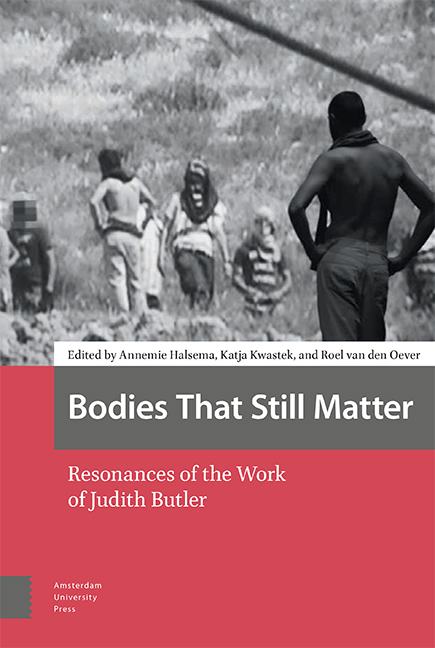Introduction
Published online by Cambridge University Press: 27 May 2021
Summary
Since the publication of her bestseller Gender Trouble: Feminism and the Subversion of Identity in 1990, the American philosopher Judith Butler (born 1956) is one of the most influential thinkers in academia. After studying philosophy at Yale University, she broadened her academic scope to include gender and sexuality studies, and social and political thought, currently serving as Maxine Elliot Professor of Comparative Literature at the University of California, Berkeley. In over thirty years of scholarship, she has authored more than twenty books and numerous articles that address socially relevant and politically pertinent topics such as gender normativity, political speech, media representations of war, and the democratic power of assembling bodies and of nonviolence. In addition, she has operated as a public figure and political activist, speaking out on an array of issues including lesbian and gay rights, the Israeli/Palestinian-conflict, America's involvement in several wars, and the Occupy movement.
The arresting academic and public impact of Butler's thought serves as an illustration of critical theory's potential to effect social change. It was this notion that led us to organize a conference on how various scholars have engaged with her work. This three-day conference, titled Critical Theory in the Humanities: Resonances of the Work of Judith Butler, was held in April 2017 at Vrije Universiteit Amsterdam. We subsequently invited selected conference speakers, plus two additional authors for the sake of comprehensiveness, to submit papers for this peer-reviewed volume. The papers were selected based on three criteria. First, the volume showcases the range of academic disciplines in which Butler's ideas have been taken up, including the arts (dance, film, literature, performance art, theater), ethics and philosophy, the study of identity (class, gender, race, sexuality), and the social sciences (linguistics, political theory, psychology). Second, the volume collects the work of early-career scholars as well as established names. Third, the contributions resonate with Butler's thinking in different ways: while some focus on one particular concept in her oeuvre and explain and critique it, others use her ideas as a springboard to move in new directions. The resulting collection is multidisciplinary, intergenerational, and methodologically diverse, a testament to Butler's broad and continuing appeal.
- Type
- Chapter
- Information
- Bodies That Still MatterResonances of the Work of Judith Butler, pp. 9 - 18Publisher: Amsterdam University PressPrint publication year: 2021



